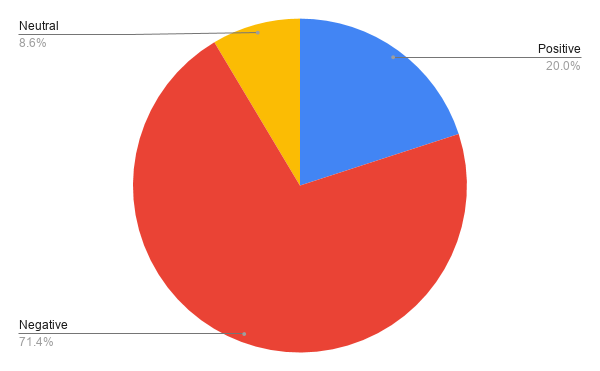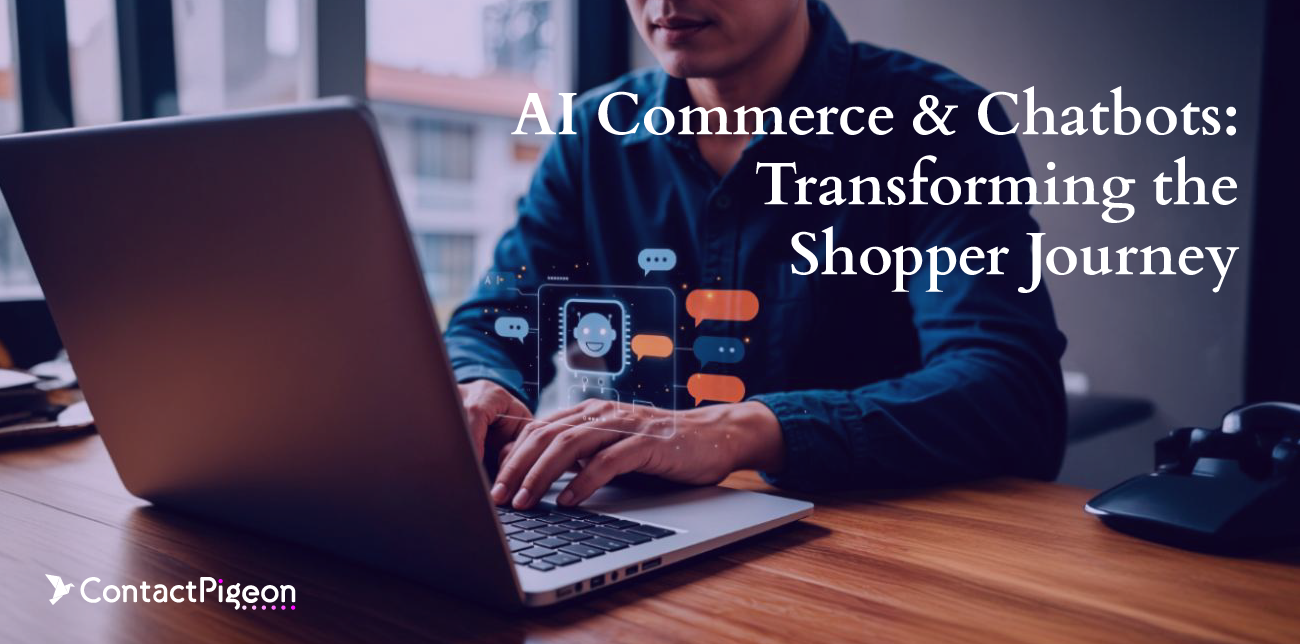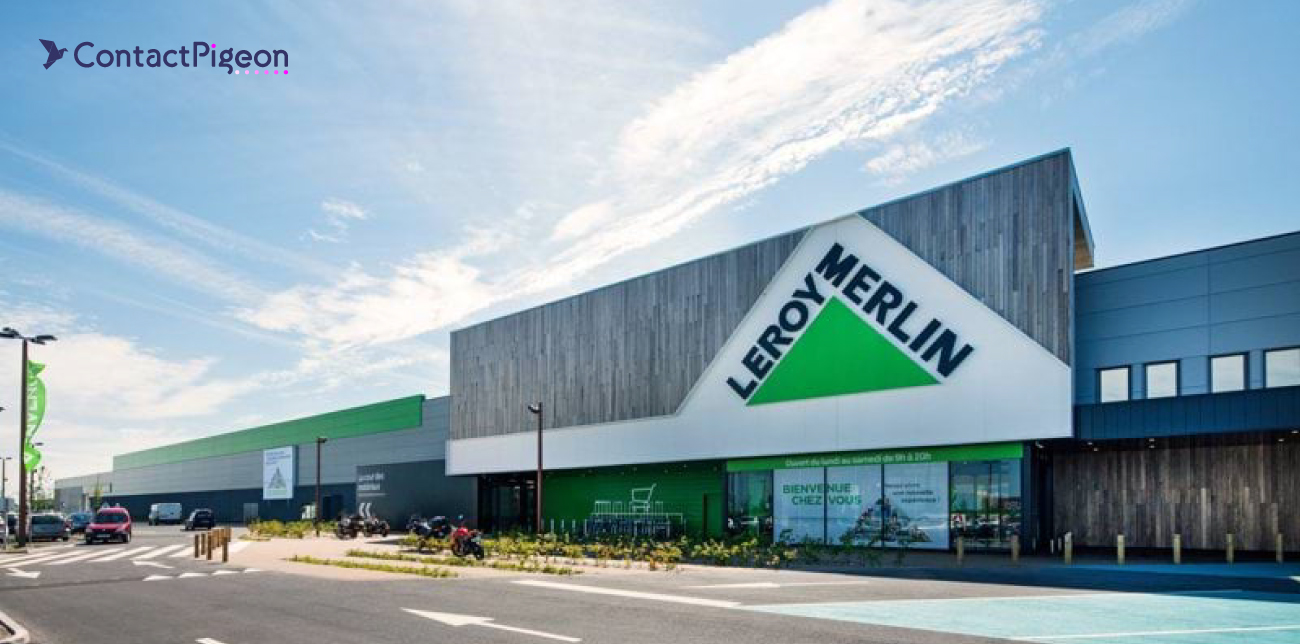The pandemic has brought a paramount uncertainty for businesses across the world amidst forced closures, disrupted supply chains, and lowered consumer spending.
According to McKinsey, nearly 24% of the British workforce (7.6 million jobs) is currently at risk because of COVID-19. While in the United States, more than 33 million Americans have reported unemployment during the two months.
Retail is among the industries severely impacted by recent events. Most operators struggle to find a way to deal with the new normal, searching through industry reports and whitepapers for ideas and guidance on ensuring business continuity. We decided to talk with 34 B2C, eCommerce, and retail businesses to understand how they have adapted to current challenges.
Through their experiences, we hope to shed valuable insights and ideas as you are pondering on the next steps for your business.
Table of Contents
- Key insights
- #1 Aaron Orendorff, VP of Marketing at Common Thread Collective
- #2 Malte Scholz, CEO at Airfocus
- #3 Melanie Balke, CEO at Melanie Balke Consulting
- #4 Jacob Wedderburn-Day, CEO at City Stasher
- #5 Merel Kriegsman, Founder & CEO at Merel Kriegsman
- #6 Sebastian Petersen, CEO at Trendhim
- #7 Craig Rabin, Founder at Airhook
- #8 Torin Rittenberg, Head of Growth at Branch
- #9 Daniela Andreevska, Marketing Director at Mashvisor
- #10 Georgia Newton, CFO at Arlo Wolf Eyewear
- #11 Ryan Malone, Marketing Manager at Love-Rugs
- #12 Stefan Gehrig, Founder and CEO at King Kong Apparel
- #13 Raul Galera, Partner Manager at ReferralCandy & CandyBar
- #14 Johnpaul Manning, Managing Director & Founder at Insulation4less
- #15 Brandin Cohen, CEO/Founder at Liquid I.V.
- #16 Sandip Sekhon, CEO at Pathways Pain Relief
- #17 Carla Diaz, Co-Founder & CEO at Broadband Search
- #18 Yungi Chu, Founder at HeadsetPlus.com
- #19 Kim Hawkins, President at Events Wholesale
- #20 Jennifer Willy, Editor at Etia
- #21 Adam Bastock, eCommerce Consultant at aBastock
- #22 Ronald D’souza, Digital Marketing Manager at Angel Jackets
- #23 Jeff Moriarty, Marketing Manager at Moriarty’s Gem Art
- #24 Lisa Graham, Queen Bee at YYC Beeswax
- #25 Dustin Vann, Founder & CEO at Trusy Social
- #26 Lauren Herpich, Founder at Local Food Adventures
- #27 Dave Munson, Founder & CEO at Saddleback Leather Co.
- #28 Eric Young, Founder & CEO at Mountaineer Brand
- #29 Cori Gray, Founder at The Mod Cabin
- #30 Lilit Broyan, Head of Marketing at Altro Source
- #31 Jack Wang, Founder & CEO at Amazing Beauty Hair
- #32 David Weaver, Founder and CEO at Vintage Cash Cow
- #33 Raven Faber, Founder and CEO at EngErotics LLC
- #34 Nick Brennan, CEO/Founder at My UK SIM Card
Key Insights: How retailers & businesses confronted COVID-19
- The majority of the businesses, 71.4% of the surveyed, were negatively affected by COVID-19. 20% of the businesses saw a positive change while the remaining 8.6% indicated a neutral impact.
- When asked about whether if recent events affect their marketing budget, 55% of the businesses either reduced or eliminated their marketing spend, 30% maintained it (or allocated it differently), and 15% increased spend during this period.
- The top 3 marketing activities that most businesses picked during the lockdown were: Content Marketing, Search Engine Optimization (SEO), Social Media Marketing
- 34% of the businesses were focused on Product RnD (Research & Development) to launch new services or products in the mid-term.
- Only 15% offered or plan to offer discounts, sales, and special promotions to provide more motives to boost consumption and increase cash flow.

So without further ado, here are what the business professionals told us.
#1: Aaron Orendorff, VP of Marketing at Common Thread Collective

Coronavirus effect: 🔺
Key Marketing Tactics used:
- Experiments (eCommerce, PPC)
- Business Model switching
We’ve potentially entered an era of cheap clicks and low-conversions — tight-fisted visitors all too happy to window shop
How Common Thread Collective’s clients reacted to this crisis:
While my business has not been directly affected, as the VP of Marketing at Common Thread Collective, I have been watching the effects of Coronavirus on eCommerce and retail businesses very closely.
As of March 2020, the data on these businesses were:
- Revenue: +12.67%
- ROAS: +11.69%
- CPM: -29.75%
- CPC: -16.65%
- CTR: -1.75%
The good news is numerous sources all report eCommerce fairing far better as consumers turn to online shopping in the short-term.
For example, Supply — a razor brand — has thrived in the online age of coronavirus. How? By testing and iterating on multiple concepts it settled on a clear winner: a free year of blades featured in stand-alone ads and integrated automatically within the cart. “We went from a year low in sales two weeks ago to having our best weekend since Cyber Monday,” said Coddou. “I almost hesitate to share that. There are so many operators struggling right now. Not everybody will find opportunities. But everybody should be looking earnestly. They’re out there. Don’t give up.”
Amidst the crisis, many B2B companies are also promoting direct-to-consumer (DTC) eCommerce channels. Happy Valley Meat is a perfect example. Previously a B2B provider to restaurants, its homepage now reads: “In response to the sweeping restaurant shutdowns due to COVID-19, Happy Valley Meat Company launched a direct to consumer solution. This way, we can offer contactless meat delivery to individuals and families who aren’t in the position to grocery shop. This keeps our mission alive: to improve the lives of the people and animals that feed us.”
We’ve potentially entered an era of cheap clicks and low-conversions — tight-fisted visitors all too happy to window shop. For B2B brands to be successful in a post-COVID-19 era, they’ll need to reach new audiences and remove every impediment to action while still maintaining sensitivity to wider needs, causes, and realities.
#2: Malte Scholz, CEO at Airfocus

Coronavirus effect: 🔻
Key Marketing Tactics used:
- Doubled down marketing efforts
- Funnel Optimization
- Hiring (Sales)
We’ve actually doubled down on our marketing activities. This is the wrong time to get rid of marketing.
How Airfocus reacted to this crisis:
We’ve actually doubled down on our marketing activities. Instead of being in despair, we’re focusing on acquiring new customers, catching up with lost opportunities, and converting free trial users into paying customers.
This is the wrong time to get rid of marketing. People are at their homes and they are reading and consuming content more than ever before. Now is the right time to advertise. Our monthly advertising budget has stayed the same.
However, we hired an additional member for our sales team that helps us reach out to potential customers. We still use the same software and tool stack with the major difference in that we are using our email marketing software more for outreach than general marketing campaigns. We will continue trying to convert free users into paid customers. So far, that has had the biggest ROI for us. In the next three months, we will do more marketing than ever. While everyone is scattered and worried about the impact of the virus, we will be doing business as usual.
#3: Melanie Balke, CEO at Melanie Balke Consulting

Coronavirus effect: 🔺
Key Marketing Tactics used:
- Creating Content
- Messaging Marketing
We’re focusing heavily on messaging the moment and meeting people where they are at: Content for them to have fun with at home.
How Melanie Balke Consulting reacted to this crisis:
The coronavirus has actually benefitted the business. More people are purchasing online and we’ve seen a 326% increase compared to last year’s Q1 and an increase of 52% compared to last month of February before the Corona Virus really hit the US. Our usual month-over-month growth is about 30%. Interestingly, sessions have been down by 35% comparing Q1 2020 to Q1 2019 and down by 0.7% comparing March 2020 to 2019.
So although we’re getting fewer people to the website, we’re converting more. Likely from an already existing customer base and leads. We’re focusing heavily on messaging the moment and meeting people where they are at: Content for them to have fun with at home, e.g. recipes and messaging that tells them to simply order online vs. going to the grocery store For the next 2-3 years minimum, to be honest. But I think e-commerce is benefitting from it heavily.
#4: Jacob Wedderburn-Day, CEO at City Stasher

Coronavirus effect: 🔻
Key Marketing Tactics used:
- Scaled-down Marketing
- Put on hold contractors and agencies
- Personnel training
Travel is one of the worst-affected areas, so being a startup in travel is hard. Our priority is to preserve cash and keep costs low while the revenue is drying up, but be ready to restart when people are able to travel again.
How City Stasher reacted to this crisis:
Travel is one of the worst-affected areas, so being a startup in travel is hard. Our priority is to preserve cash and keep costs low while the revenue is drying up, but be ready to restart when people are able to travel again.
Marketing is an area we’ve scaled back on hugely since the outbreak. In the last month, we’ve halved our marketing budget by taking a number of different approaches. We’ve cut our PPC spend, put a hold on all agency, contractor, and external writing work.
Due to the sense of isolationism spreading across the travel industry, our Business Development team has found themselves with spare time on their hands. We’ve had the marketing team train them up so that they can lend a hand with PR and content creation work. By bringing all of this work in house and making the most out of our existing resources, we have been able to push costs lower still.
#5: Merel Kriegsman, Founder & CEO at Merel Kriegsman

Coronavirus effect: 🔺
Key Marketing Tactics used:
- Adjusted USP
- Boosted Content Creation
- Hiring
- Invested in Paid advertising
- Invested in Software
So far, COVID-19 hasn’t had a negative impact on my business at all. In fact, we closed a whopping 100% of our sales calls last week.
How Merel Kriegsman reacted to this crisis:
So far, COVID-19 hasn’t had a negative impact on my business at all. In fact, we closed a whopping 100% of our sales calls last week (normally our close rate is about 70%).
The reason for these robust numbers? As soon as I realized how circumstances were shifting, I shifted the position of my offers as well: Instead of pretending nothing has changed, I create a lot of COVID-19 related content, and I’ve helped my audience understand how my offer might just be the perfect answer to solving financial insecurity.
Instead of having to let people go, I’ve hired a new social media manager, have invested in FB ADs, and purchased “BombBomb” (a software you can use to send potential clients a personalized video message via email) to double down on lead generation and high-ticket sales. I’ve also expressed to my team that we’re in this together. We do daily check-ins in our “Slack channel” to see how everyone is doing. And they know that if we need to cut expenses, they’d be the very, very last to go (team first!).
I suspect COVID-19 and the economic turbulence it’s causing will affect all industries for the next 18 months, maybe longer.
#6: Sebastian Petersen, CEO at Trendhim

Coronavirus effect: 🔻 (20-35%)
Key Marketing Tactics used:
- Inform customers for delays
- Stockpiled Products
- No job cuts
We are hardest hit by logistics because we are so global and must have goods for many countries. It is a challenge when the planes are on the ground.
How Trendhim reacted to this crisis:
Like so many others, we saw a grenade in the market in the first period, with our turnover falling by around 35%. Now we are back and there is progress to be made, but we are still approx. 20% below the normal level.
We are in many countries, and the picture is the same with the decline. However, Italy is the worst hit.I expect we will lose 1 million. DKK ($150k) at the bottom line during the entire crisis.
We check the status of the business every day. We expect a smooth second quarter, but expect a comeback in Q3 and Q4. It should also be said that we are affected by currency declines in many countries because we trade in so many different currencies. We are the hardest hit by logistics because we are so global and must-have goods for many countries. It is a challenge when the planes are on the ground.
There are also several places where it is illegal to pay with cash or to the freight forwarder, and this is actually a very widespread payment method – especially in Eastern Europe. We still ship to all countries, but we also write to customers that there may be longer delivery time. Return goods are also challenging because some countries close their post offices.
In terms of the delivery of goods, we are ok. We are fortunate to have our own collections and productions and long stockpiles. At the same time, we got a collection out of Italy before closing down. In China, the wheels have started to roll again, so I don’t expect us to have supplier problems in the long run. In terms of marketing, we are seeing a significant drop of around 35% in Google searches – the demand for our products is not the same at the moment, and that of course affects sales.
Elsewhere, we can get a little more views (lowered CPM), but there are fewer clicks to buy. We did not fire any employees, we did financial support, and we won’t be saving anything. We will get through this. In fact, we have planned to go into even more markets, but we will be waiting until the crisis is over.
#7: Craig Rabin, Founder at Airhook

Coronavirus effect: 🔻 (>90%)
Key Marketing Tactics used:
- Scaled everything to zero
- Product R&D
We are hardest hit by logistics because we are so global and must have goods for many countries. It is a challenge when the planes are on the ground.
How Airhook reacted to this crisis:
Here are some numbers that we experienced:
- Web traffic down from 1,000 hits/daily >> 25 hits/daily (>90% drop)
- E-Commerce revenues of $3,500 weekly >> $250 weekly (>90% drop)
#8: Torin Rittenberg, Head of Growth at Branch

Coronavirus effect: 🔻
Key Marketing Tactics used:
- Created Work from Home packages
- Paused B2B Advertising
- Focus on Social & SEO
We’re prioritizing organic growth right now, sharing promotional codes vie LinkedIn networks and reaching out to companies (B2B2C) to encourage their employees to buy from Branch if in need of better office equipment.
How Branch reacted to this crisis:
Traditionally, our bread ’n butter has been servicing large workplaces (companies ranging in the 20-200 headcount range). But times have changed, and we’ve seen an increase in demand for our products in the home. That’s caused us to rethink our marketing strategy…big time.
Here’s what we’ve done:
- We’ve been putting together work from home packages for folks that are in dire need of better, more ergonomic office equipment because we all know too well that bending over the kitchen tables results in back and neck aches quickly. We’ve usually strayed away from doing residential office furniture, but these are interesting times, and folks aren’t going into offices. In addition, we’ve paused our advertising for traditional corporate office furniture campaigns and the like because not many companies are moving offices right now, and brokers aren’t really showing new office spaces either. In addition, we’ve been thinking of launching a social campaign to target users because now, nearly everyone has some sort of intent on buying for a home office. We’re also prioritizing organic growth right now, sharing promotional codes vie LinkedIn networks and reaching out to companies (B2B2C) to encourage their employees to buy from Branch if in need of better office equipment.
- For our monthly advertising budget, it’s definitely dropped for AdWords; however, some of those costs will be retargeted towards social campaigns.
- For software tools, we’ve effectively shut down many “Pro” accounts we’ve been using to cut costs. This hasn’t held us back much, but we do lose some luxurious capabilities that aren’t necessarily needed for functioning at the moment.
- We will 100% continue both our Brand advertising campaign on Google, as well as our Work From Home campaign across AdWords and soon, social. For our Brand campaign, it’s important to keep it going because as we continue to push organic growth, folks are increasingly searching for “Branch” and expecting to find us. That’s why we need to always be #1 for that search, even if we’re not the #1 organically ranked result. e) In total, we will likely decrease spending on our marketing strategy.
That said, our budget is getting completely reorganized as mentioned above. We likely won’t spend as much on Social as we are taking out of AdWords, but it will be close.
#9: Daniela Andreevska, Marketing Director at Mashvisor

Coronavirus effect: 🔻 (Significant)
Key Marketing Tactics used:
- Released COVID-19 Content
- Decreased Ad spending
- Canceled software subscriptions
While we kept creating some of our usual content in the form of blog posts, we also started publishing daily articles on various topics related to the impact of COVID-19 on the US housing market.
How Mashvisor reacted to this crisis:
To adapt to the current situation, we at Mashvisor have made a few important short-term to medium-term changes to our marketing strategy. As a result of the Coronavirus pandemic, we’ve witnessed a significant drop in organic traffic to our website. The reason is the nature of our business as a real estate investment platform. At times of uncertainty, the initial response of the vast majority of people is to stop thinking about buying investment properties in order to keep their savings.
We are fully aware of this reality and have responded in the best way we can to help out our users and customers.
- Namely, while we kept creating some of our usual content in the form of blog posts, we also started publishing daily articles on various topics related to the impact of COVID-19 on the US housing market which also include practical tips on how to stay safe while protecting your real estate business, whether as an investor, an agent, or a property manager. These Coronavirus-related topics constitute about half of our currently published content.
- Our content marketing budget has remained the same for the time being.
- However, our paid advertising budget has been drastically decreased for the simple reason that paid ads produce almost zero results at the moment. We are currently evaluating the various tools which we use across the company including in the Marketing department. We are deciding which ones are absolutely crucial for our work, while we will temporarily stop using those which are not a must. Actually, many of these tool platforms have offered us a discount which will help us continue using the majority of tools.
The one marketing activity which will continue no matter how tough the situation becomes is our blog. We will continue publishing daily articles on various topics related to real estate investing as well as such of interest to real estate agents and brokers and property managers. The main reason we will continue doing this is that our users find a lot of value in our blog posts, and that’s our way of guiding investors, agents, brokers, and property managers through this crisis. Our blog is our main marketing tool as more than three quarters of our traffic comes organically, under normal circumstances. Even at the moment, the majority of our traffic is organic.
It’s hard to tell what the next 3 months hold for the US housing market, the real estate industry, and our company, but we plan to retain our content marketing budget at its pre-Coronavirus level. However, we will most probably not resume paid marketing for the time being. In terms of human resources, we are not hiring any new employees at the moment.
#10: Georgia Newton, CFO at Arlo Wolf Eyewear

Coronavirus effect: 🔻 (23%)
Key Marketing Tactics used:
- Free Home delivery
- Work closely with key suppliers
- Product cleansing with antibacterial wipes
The safety of our customers is paramount to us, and we have extended the free home trial period we offer to coincide with lockdown measures. We want to reassure customers that we are here for them, and that their health is our primary concern.
How Arlo Wolf Eyewear reacted to this crisis:
Coronavirus’ impact on the business so far, compared to the pre-quarantine period is:
- Revenue down 23%
- Transactions down 23%
- Conversion rate down 12%
- Traffic down 17%
The safety of our customers is paramount to us, and we have extended the free home trial period we offer to coincide with lockdown measures. We want to reassure customers that we are here for them, and that their health is our primary concern.
Internally, we have updated our stock management systems to ensure that all orders can be fulfilled as efficiently as possible.
We also work very closely with our key suppliers to ensure that prescription orders remain fulfilled as efficiently as possible, whilst working safely and in a controlled environment. All of our staff are working from home to ensure their and their families ongoing safety. All of our products and home trial cases are continued to be cleaned with anti-bacterial wipes – again our customers safety is key to us.
In Advertising – we are continuing to maintain our levels of paid social work – with more people working from home and on lockdown, we see this as potentially an opportunity for growth.
I think that the safety of the country is more important than the industry at the moment, and it is impossible to say how long the impact will last for – a lot will depend on the updated advice from the Government. We are in unprecedented times, so there isn’t a comparable event to measure market impact too. I would imagine that the market will rebound slowly, as consumers regain their confidence and have more certainty in their own personal circumstances.
#11: Ryan Malone, Marketing Manager at Love-Rugs

Coronavirus effect: 🔻 (40%)
Key Marketing Tactics used:
- Focus on Search Engine Marketing (Shopping Lists)
- Safety Measures & Open communication with employees
- More content, newsletters, social media posts
In the coming weeks we will be ramping up Search Engine Marketing in the way of sponsored shopping listings, as well as increases in social media spend and email newsletter campaigns
How Love-Rugs reacted to this crisis:
Since the effective lockdown for non-essential businesses in-store sales have been zero however, even before this sales started to slow from early to mid March, after a promising February.
As the initial spread of the Coronavirus took hold, less customers came through the door as, understandably, people were reluctant to be out shopping for homeware products which are non-essential. Since the closure of our showroom, we have become solely reliant on online sales.
As a business we have been moving more towards e-commerce sales in recent times but in-store sales still account for the majority of our turnover. Having analysed our web traffic during March compared to February, there has been a substantial dip (19.8%) in visitors. Since Covid-19 really took hold in the UK around the middle of March we have seen a substantial and consistent drop in traffic on a daily basis from the same period the month before.
Online sales have declined to an even greater extent, by 40% from February to March. Noticeably, online sales in the second half of March are substantially lower than the first half; while this is not uncommon, the degree that this has happened is significant.
It is our hope that the longer people are confined to their homes, the more they become settled into life and realise that they have the essentials and can survive at home, the more their thoughts will turn to products like rugs, flooring and other furniture and furnishing items. If this is the case, then we would expect the initial downward trend in visitors to turn on its head as the publics’ thoughts move towards making their home a more comfortable living and working environment.
In the coming weeks we will be ramping up Search Engine Marketing in the way of sponsored shopping listings, as well as increases in social media spend and email newsletter campaigns. While employees work from home the focus moves away from day to day running of the business and dealing with customers and more to online content, blogging, web design tweaks and other SEO tweaks.
These are extremely challenging times for us as a business, a business that in recent years has been quite successful. It is our hope that while weathering the storm we can improve online performance and use this as a platform to really push the ecommerce side of our business to where we want it to be.
Like many businesses we have taken steps to keep communication between staff open, for some time we’ve being using Slack as a means of inter-office communication and this has been key while working remotely. Other businesses use similar software packages, such as Microsoft Teams. While we hope that people will begin planning and buying products once more for their homes online, more like they how did before the outbreak or even to an increased level, there are still concerns from customers and businesses alike over the supply chain and ability to deliver goods.
This uncertainty will continue to hold some consumer back, and the reality is if suppliers doors are closed, or remain closed, for long periods of time this will have a massive effect on the whole industry. Love-Rugs are fortunate in that we carry a massive stock, but even that will not last forever. To some extent, even online sales will continue to be impacted until there is a time where people are confident of going back to work. While it’s impossible to predict just how long that may be, it is becoming ever clearer that it will exceed the initial three week lockdown.
#12: Stefan Gehrig, Founder and CEO at King Kong Apparel

Coronavirus effect: 🔻 (50-60%)
Key Marketing Tactics used:
- Custome retention & Remarketing
- Product R&D
Instead of targeting new customers, we have narrowed our marketing focus to our current customers with email marketing campaigns and re-marketing efforts. We are also focusing on the development of new products which will be ready in a few months.
How King Kong Apparel reacted to this crisis:
The conversion rate on our ecommerce site has dived by 40%. This drop coupled with a reduced amount of traffic has resulted in an even greater decline in total sales/revenue.
Right now, we’re focused on our email list and our followers on social channels. Our messaging is now LESS focused on new acquisition. Instead of targeting new customers, we have narrowed our marketing focus to our current customers with email marketing campaigns and re-marketing efforts directed at customers who have been to our website and viewed products.
We are also focusing on the development of new products which will be ready in a few months. Our thinking here is that engaging with our best customers and biggest fans about new products that are in the pipeline, will foster a feeling of business-as-usual, without the immediate ‘Shop Now’ CTA which is unlikely to work in the current climate. Right now, we are gearing up for Q3 and Q4.
We just ran our usual end-of-Q1 sale which was down 50-60% based on the same time last year. Based on this we are pushing new product launches back several months at least but that is our best estimate at this time.
#13: Raul Galera, Partner Manager at ReferralCandy & CandyBar

Coronavirus effect: 🔻 (50-60%)
Key Marketing Tactics used:
- Focus on SEO
- Reviewed all our software subscriptions
- Decreased marketing budget considerably
Our focus on SEO & content marketing is defiitely not going to change anytime soon and we’re already looking at post-COVID times.
How CandyBar reacted to this crisis:
We’ve actually almost stopped most of our advertising campaigns and started to look into our marketing software costs a bit more closely, so our marketing budget has been decreased considerably. This period has actually been a good time for us to review all our software subscriptions and cancel those we’re not actively using. However, Our SEO and content marketing strategy are definitely not going to change anytime soon as we’re already looking at post-COVID times.
#14: Johnpaul Manning, Managing Director & Founder at Insulation4less

Coronavirus effect: ➖
Key Marketing Tactics used:
- Remote Working
- Kept Marketing budget as normal
Our marketing campaigns and advertising currently we are continuing as normal and will continue to do so until we see a drop in traffic and or revenue.
How Insulation4less reacted to this crisis:
Currently, we have not seen a drop in revenue or visits to our websites Build4less.co.uk and Insulation4less.co.uk. Our biggest concern right now is our supply chain: Keeping our supply chain up and running is the most important element to us in this crisis. As long as this is not impacted severely we can continue to supply our customers with quick delivery times.
We have experienced some closures of factories and distribution centres around the country, but we have been able to source material elsewhere or just temporarily remove certain product ranges from our online offering.
From a human resources standpoint, we have accommodated for all our staff to work from home and have advised those who decided to stay working in our office on the HSE guidelines on social distancing and good hygiene.
Our marketing campaigns and advertising currently we are continuing as normal and will continue to do so until we see a drop in traffic and or revenue.
Also, we are keeping a close eye on the current state of play with Building Site closures. This, of course, will have a big impact on our decision-making process on our marketing spend during this crisis. I would think depending on how well the British people adhere to our government’s recommendations in relation to social distancing and isolation for those who have been in contact with someone who is a confirmed carrier or someone who has been confirmed as a carrier will determine how long we are in this crisis continues for.
It is likely I would think we are looking at a minimum 3 month period until we can start to look at lifting some of the restrictions in place. Again all that depends on the British public. Unfortunately, some just do not listen and don’t care which could prolong this virus unnecessarily.
#15: Brandin Cohen, CEO/Founder at Liquid I.V.

Coronavirus effect: 🔺 (100%)
Key Marketing Tactics used:
- Donations & Charity
- Pivoted to meet demand
Liquid I.V. is actually doubling in sales since the outbreak. They’ve been able to hire more employees and are producing almost double the product to meet the demand
How Liquid I.V. reacted to this crisis:
Liquid I.V. is actually doubling in sales since the outbreak. We’ve been able to hire more employees and are producing almost double the product to meet the demand. The Surgeon General’s statement about hydration being the number 3 precaution in order to boost your immune system, contributed to this growth . We’ve had to pivot quickly to meet demands so store’s supplies don’t run out and we fill orders quickly.
We also understand how important it is to show support to the community during this time so we have donated more than 40k Liquid I.V. sticks to the LA Food Bank and over 19k sticks to Meals on Wheels to hydrate the elderly in effort to help keep their immune systems boosted and healthy since they’re more at risk. Liquid I.V. can hydrate you 2-3x faster and more efficiently than water alone. Liquid I.V. can stock up pantries for those in self quarantine at home. They’ve also stocked hospitals as well to keep doctors hydrated and alert.
Liquid I.V. follows the World Health Organization’s guidelines for an Oral Rehydration Solution, a groundbreaking formula that has saved lives across the world. The company has always been big into charity, all together they’ve donated over 2.5M sticks globally since the company has launched.
#16: Sandip Sekhon, CEO at Pathways Pain Relief

Coronavirus effect: 🔻
Key Marketing Tactics used:
- Product R&D
- PPC paused
- Content
We will maintain our spend on evergreen content creation. We continue to see a positive ROI here, and the investment in great content almost always pays off
How Pathways Pain Relief reacted to this crisis:
We had planned Google ads and Facebook marketing campaigns scheduled, however, with the coronavirus crisis, we feel that it’s no longer appropriate. If feel that if we were to run a campaign targeting people in pain right now, it feels just a little exploitative. So we’re postponing this, and instead, redirecting these funds into further product development and content creation.
As opposed to paid advertising, we’re putting funds into product development and content creation, while software-wise we continue to use our usual project management tools (Skype, Asana, Figma).
Overall, we will maintain our spend on evergreen content creation as we continue to see a positive ROI here, and the investment in great content almost always pays off. In 3 months, we plan to reassess our paid advertising efforts.
#17: Carla Diaz, Co-Founder & CEO at Broadband Search

Coronavirus effect: 🔺 (20%)
Key Marketing Tactics used:
- Created new Pricing plans
- SEO
The foundation of the business has always been SEO efforts driven by guest post outreach and paid sponsorships. As people have been forced by shelter-in-place orders to take their lives indoors, we have seen a rise of about 20% in the number of visitors to our most popular pages
How Broadband Search reacted to this crisis:
As a company that has actually seen profits go up as a result of the pandemic, we have been able to use increased cash flow from rising searches on our optimized pages to crank up the paid link buys portion of our marketing mix. The foundation of the business has always been SEO efforts driven by guest post outreach and paid sponsorships. As people have been forced by shelter-in-place orders to take their lives indoors, we have seen a rise of about 20% in the number of visitors to our most popular pages. With more people stuck indoors, the demand for faster internet has gone up, which is not a surprise. Increased search volume leads to more sales and affiliate commissions. Though we have put some of this new cash flow aside for a rainy day fund, the rest is going towards more sponsored link buys. As long as we continue to see a good return on this investment, we’ll keep doing it.
One marketing approach during times of trouble like these is to become super-focused on the idea of helping your customers rather than selling them something. This goes contrary to instinct with so many businesses now desperate for sales and cash flow in this era of the shelter-at-home orders. As hard as it is, look beyond your own front door and find out how you can make another person’s life easier. For example, as the pandemic rolled on I received a growing number of calls from clients who apologetically wanted to cancel service because money was tight. Completely understandable. I talked to them a bit, asked a few questions, and realized that I needed lower-priced options that might tempt them to remain a customer.
For those who couldn’t afford to keep service at any price, I offered to put their subscription on a three-month hold but not cancel it, keeping them in active customer status.
Additionally, we created lower-priced plans that allowed customers to downgrade to a slower connection. I found that about 70% of those who planned to cancel entirely chose to either downgrade or push the pause button. Good for them and good for me. That’s how business needs to work under adverse conditions.
#18: Yungi Chu, Founder at HeadsetPlus.com

Coronavirus effect: 🔻
Key Marketing Tactics used:
- Informed customers for delays
Most of the factories I order from are currently shut-down or have been shut down the last 2-3 weeks. They are not even answering the phones.
How Headsetplus.com reacted to this crisis:
The Coronavirus (Covid-19) has affected almost all our suppliers and manufacturers, the entire supply chain. Most of the factories I order from remained closed for more than 2 months. Nothing was being shipped, nobody was working. We have orders that typically ship within 1 or 2 business days from factory, now it’s taking 4 weeks+. Most of our factory orders still on backorder. We still have many customer orders that are cancelled due to no stock and a list of order that will soon to be cancelled if the situation don’t improve.
#19: Kim Hawkins, President at Events Wholesale

Coronavirus effect: 🔻
Key Marketing Tactics used:
- Located new suppliers
- Product R&D
We are taking this downtime as an opportunity to update our products and add new products for the future
How Events Wholesale reacted to this crisis:
Although we are an online company, we are making preparations due to the spreading of the coronavirus. We import many of our products, and the coronavirus has slowed and even halted production of some items that we sell. We are placing large orders to stock up on all of our best sellers and have even had to locate new suppliers.
We are entering what normally is our busy season. Unfortunately, with events across the US being cancelled, our sales have slowed. A few customers are still planning future events and weddings. We are taking this downtime as an opportunity to update our products and add new products for the future. Hopefully, life will resume as normal soon, and our customers will be planning “coming out of quarantine” parties in the near future!
#20: Jennifer Willy, Editor at Etia

Coronavirus effect: 🔻
Key Marketing Tactics used:
- Paused Hiring
- Canceled projects
My company has recently announced that no more employees will be hired for the next four months, several of our projects have been canceled or stalled. We all are giving our best for the company and are willing to dedicate more hours of work.
How Etia reacted to this crisis:
It has been a very difficult time for various organizations and companies as their hiring and the recruiting process has completely stopped. Personally, my company has recently announced that no more employees will be hired for the next four months due to financial loss and economic slump. We are told that due to coronavirus, several of our projects have been canceled or stalled. We all are giving our best for the company and are willing to dedicate more hours of work. Several other competitors are also facing similar kind of problems. Most of them have stopped their recruitment procedures for several coming months. Hopefully, everything will get back to normal. That’s all we can and should hope.
#21: Adam Bastock, eCommerce Consultant at aBastock

Increased Google Ads spending on niche terms may be an opportunity
How aBastock’s clients reacted to this crisis:
This has been really mixed. Some are operating normally – or perhaps even seeing an increase in sales because they’re better placed to work remotely / digitally than competitors. Others have seen orders reduce by 70%.
Increased Google Ads spending on niche terms may be an opportunity. Some competitors for some of my clients have stopped all advertising completely, making it far cheaper than before for us to compete. Most of my time has been spent reassuring companies NOT to panic and knee-jerk pull marketing, as keeping a reduced and steady spend will be more beneficial long term. Sadly this hasn’t always worked and I’ve lost some clients because of it.
If we can get to October and things are relative “a new normal” again, then companies that held firm and continued to acquire customers during a difficult time should flourish. I’m anticipating a lot of panicked people not ready for the holiday season and having to spend more money in the short term to play catch up than they would otherwise have – especially those in gifting sectors
#22: Ronald D’souza, Digital Marketing Manager at Angel Jackets

Coronavirus effect: 🔻 (50%)
Key Marketing Tactics used:
- Paused Paid advertising
- Swifted to SEO & Content Marketing
We shifted our focus from paid advertising to SEO and content marketing
How Angel Jackets reacted to this crisis:
Our Store traffic dropped to about 50% We shifted our focus from paid advertising to SEO and content marketing strategies to boost organic ranking and traffic because, after the storm has passed, it is our organic traffic that will help us get back on track and recover from the loss. I think the crisis will have an effect on our business until the end of July.
#23: Jeff Moriarty, Marketing Manager at Moriarty’s Gem Art

Coronavirus effect: 🔻 (up to 70%)
Key Marketing Tactics used:
- Increased Paid search budget
- More active in Social media
In order to combat this we have focused more towards our online business which has increased by about 75%
How Moriarty’s Gem Art reacted to this crisis:
This has been really mixed. Some are operating normally – or perhaps even seeing an increase in sales because they’re better placed to work remotely / digitally than competitors. Others have seen orders reduce by 70%.
Increased Google Ads spending on niche terms may be an opportunity. Some competitors for some of my clients have stopped all advertising completely, making it far cheaper than before for us to compete. Most of my time has been spent reassuring companies NOT to panic and knee-jerk pull marketing, as keeping a reduced and steady spend will be more beneficial long term. Sadly this hasn’t always worked and I’ve lost some clients because of it.
If we can get to October and things are relative “a new normal” again, then companies that held firm and continued to acquire customers during a difficult time should flourish. I’m anticipating a lot of panicked people not ready for the holiday season and having to spend more money in the short term to play catch up than they would otherwise have – especially those in gifting sectors
#24: Lisa Graham, Queen Bee at YYC Beeswax

Coronavirus effect: 🔻 (40%)
Key Marketing Tactics used:
- Launched new product
- Weekly educational series (Content Marketing)
- More active in Social media
We’ve implemented a new subscription program (purchasing some software to support this on our website)
How YYC Beeswax reacted to this crisis:
So far, we’re looking at about 40% drop in revenue versus last year, and I expect this number to increase in April.
We’ve also implemented a new subscription program (purchasing some software to support this on our website), put together a free weekly online educational series, create a new candle making workshop package that fits well with our new online candle making workshops. We’ve also been more active than normal on social media.
About the next day, we are currently planning for a 4-6 month disruption and will continue to revisit that timeline as we move forward.
#25: Dustin Vann, Founder & CEO at Trusy Social

Coronavirus effect: 🔻
Key Marketing Tactics used:
- Budget re-allocation
- Increased Social Media activity
- Halted PPC campaigns
- Software replacements
We haven’t reduced our budget yet we have just reallocated it to concentrate on medical and healthcare industries.
How Trusy Social reacted to this crisis:
We used to do social media marketing for all our clients from a number of different niches. However, due to decreased online traffic most have suspended their marketing budget to use on payroll and other essential services. Yet, we haven’t reduced our budget, we have just switched it to concentrate on medical and healthcare industries. These niches are being researched and looked up online and followed on social media now. So instead of us sitting on our hands and losing all our revenue streams, we are looking to make up the difference by taking on medical and healthcare clients.
We have also stopped using our PPC ads for now as the CPC has massively increased. Additionally, we suspended or Ahrefs software payments and started using MOZ, as they offer a similar service but are giving it for free in the current crisis.The sole activity which still continues unaffected is social media marketing. This is what our brand is known for and our excellence in producing quality, engaging posts will prove to be our signature throughout this crisis. Keeping up appearances will allow us to hit the ground running when normality resumes.
For the next upcoming months, we will reduce spend in certain areas depending on how low the ROI fluctuates. However, depending on how the medical client recruitment goes, we may start to reinvest a lot of the budget into PPC to go with our other outreach sales processes.
#26: Lauren Herpich, Founder at Local Food Adventures

Coronavirus effect: 🔻
Key Marketing Tactics used:
- SEO
- Content Marketing
- Giveaways
- Limited ad spending
While we won’t be spending money on immediate short-term digital marketing, I have decided to focus my investment in SEO development and content creation
How Local Food Adventures reacted to this crisis:
Coming off of an amazing 2019, I invested in a marketing agency to beef up my digital marketing strategy (Facebook and Google Ads). After five years of doing everything myself, I felt financially more secure to delegate this and hire professionals to take this on and help my business grow.
Unfortunately with tourism coming to a standstill and businesses having employees working from home, my business is at a standstill. While we won’t be spending money on immediate short-term digital marketing, I have decided to focus my investment in SEO development and content creation that will help my business be more ready for when guests are ready to join our tours again.
In addition, we have started a daily gift card giveaway on top of our marketing spend so to support our food tour stop partners and promote that they have gift cards to sell now. This means cash flow to help keep them afloat and something customers can look forward to in the future.
#27: Dave Munson, Founder & CEO at Saddleback Leather Co.

Coronavirus effect: 🔻
Key Marketing Tactics used:
- Dropped ad budget
- Active Social Media presence
- Replatforming (eCommerce)
- SEO
We’re doing a lot more branding and a lot less marketing. Branding is making people to FEEL something and Marketing is asking people to DO something
How Saddleback Leather Co. reacted to this crisis:
We’ve made changes to what we do. We’re doing a lot more branding and a lot less marketing. Branding is making people to FEEL something and Marketing is asking people to DO something. We are bringing up dozens of our very favorite heartwarming or funny videos dating back to 2006 and sharing them with customers again. We’re being a friend to them and making them smile rather than asking for some of their hard earned cash right now. But we’re keeping ourselves in the forefront of their minds for when the hard times soften. Then we’ll market to them a little more.
We have dropped our budget with ads by 90% and it hasn’t affected our sales at all. At the same time, we love our ERP Acumatica and because they have made it so easy to connect to BigCommerce, we are leaving Magento and will be saving 55,000/year. That transition begins next week. This downturn made it an easy decision.
Search Engine Optimization is the marketing activity we will maintain no matter what. It converts for us far better than any other traffic and it’s free. We’d be fools not to continue it.
Over the next few months, we will be investing the same in our marketing strategy. Taking the budget away from ads and putting it towards SEO.
#28: Eric Young, Founder & CEO at Mountaineer Brand

Coronavirus effect: 🔻
Key Marketing Tactics used:
- New website
- Launched new product series
- Discounts/Coupons
- Increased ad spending
We’ll continue social media marketing because that’s where our customers are right now. If we have to make cuts, that will be the last type of marketing to go.
How Mountaineer Brand reacted to this crisis:
During this time, Mountaineer Brand has:
- launched a new website, started a bald care subscription service, and increased social media advertising. We’re also running more discount codes.
- increased our social media ad spend; we’ve kept most other marketing spend the same.
- not made changes to our software stack.
- maintained the same social media marketing strategy because that’s where our customers are right now. If we have to make cuts, that will be the last type of marketing to go.
In general we’ll invest slightly more as long as it makes sense. Things are changing so rapidly right now that this might change tomorrow.
#29: Cori Gray, Founder at The Mod Cabin

Coronavirus effect: 🔻
Key Marketing Tactics used:
- Increased Social media ad spend
- Stopped Influencer Marketing
We’ve increased our social media ad spend and are offering more discounts. We’ve also temporarily shifted strategies away from influencer marketing,
How The Mod Cabin reacted to this crisis:
During this time, we’ve increased our social media ad spend and are offering more discounts. We’ve also temporarily shifted strategies away from influencer marketing, without changing our budget yet, but we are watching trends daily to make those decisions. Our software stack remained the same and we plan to continue to advertise on social media for as long as possible because we see ROI on that front.
In general, we know this will end; we just don’t know when. We want to continue to market and stay top of mind so that we can be in a good position when things rebound.
#30: Lilit Broyan, Head of Marketing at Altro Source

Coronavirus effect: 🔻
Key Marketing Tactics used:
- Shifted to Products with high demand during the lockdown
As a marketer, your ability to be flexible to the changes should be one of your imperative strengths as a company in e-commerce. It is important to target a niche, but you should be prepared to call your boss and tell that we need to switch.
How Altro Source reacted to this crisis:
As any other e-commerce business, ours was affected by the recent events as well. But our company was very flexible to react before things got worse. What we did with our marketing team we quickly researched and found top consumed products and we totally switched to offering them on our store. Thanks to that move, we were able to keep the daily average order number.As a marketer, your ability to be flexible to the changes should be one of your imperative strengths as a company in e-commerce. It is important to have your niche but you should be prepared to call your boss and tell that we need to switch
#31: Jack Wang, Founder & CEO at Amazing Beauty Hair

Coronavirus effect: ➖
Key Marketing Tactics used:
- Freebies to orders
- Sales/Discounts
We offer freebies & we also run sales so we are able to cater to people’s needs in this time of social distancing.
How Amazing Beauty Hair reacted to this crisis:
Hopefully for us the drop was below 0.5% in terms of visits and inquiries since we are an eCommerce business, so we are able to cater to people’s needs in these times of social distancing. In terms of promotion, we are offering free N95 masks for every hair extension purchase and we also have an ongoing sale that should help the business, but that also coincides with tax season.
For as long as the crisis is ongoing. But I don’t think would it would be that much for E-commerce businesses.
#32: David Weaver, Founder and CEO at Vintage Cash Cow

Coronavirus effect: 🔻
Key Marketing Tactics used:
- Turned to White labeling
- Launched new services
With charities being hit so hard, many with over 90% of their income at risk and 12,000 shops closed – we have put most of our resource into helping
How Vintage Cash Cow reacted to this crisis:
With charities being hit so hard, many with over 90% of their income at risk and 12,000 shops closed – we have put most of our resource into helping. We’ve scaled up our cold outreach to charities for our new product Vintage Giving. We’re also preparing to white label it too so charities can run their own fully branded fundraising area. This is a huge change to the strategy as it means the charities run promotions to their donors and we support their efforts, compared to going direct to consumers ourselves.
For our direct to consumer produce Vintage Cash Cow, while people are panicking, we’ve cut spend as we test different messaging concepts. Taking a box to a Post Office is a standard part of our customer journey. It would be irresponsible to push this too hard right now so we’ve put more focus on free home collection. Direct mail, new refer a friend program and influencer partnerships have been put on hold while we’re testing.
Facebook ads and Adwords make for the perfect way to quickly compare CTR’s and on-site conversion. For services where the revenue-driving action takes place weeks later, in our case getting a box into us, we’d in the past have to while a while longer to see results. Developing an early warning system becomes essential. You then know sooner if the new users will become activated customers, or if the messaging is leading to leads with no intent to follow through. We use a phone call for our early warning system and we’re confident we’ll soon be able to turn up spend while CPM’s are low as well as restart the new channels we paused.
#33: Raven Faber, Founder and CEO at EngErotics LLC

Coronavirus effect: 🔺 (199%)
Key Marketing Tactics used:
- More Content
- Sales & Promotions
- Social Responsibility campaigns
- Finetuning
We’re doing our best to make our products more financially accessible during the economic downturn by running sales and promotions.
How EngErotics LLC reacted to this crisis:
Coronavirus has definitely hit my business but in a good way. We’re a CannaSexTech startup, so our sales have gone up significantly rather than down. I calculated a 198.7% increase in online sales when I compared February to March (I didn’t include our POS sales at the last tradeshow we did because I wanted an apples-to-apples comparison).
Since we can’t travel to any tradeshows or events, we’re focusing on creating interesting, informative, and engaging content on social media to continue to draw people in. We’re doing our best to make our products more financially accessible during the economic downturn by running sales and promotions. We’re also doing our part to assist our community by organizing a fundraising/giveaway campaign to help with COVID relief efforts. Aside from those things, the team and I have been working on fine-tuning the details of the company that we previously haven’t had the time to get to.
My personal opinion is that sexual wellness companies will continue to thrive even more than usual for as long as this crisis lasts. Self-care is extremely important in the face of adversity and most people won’t hesitate to spend money on sexual pleasure even if they are on a tight budget.
#34: Nick Brennan, CEO/Founder at My UK SIM Card

Coronavirus effect: 🔻 (100%)
Key Marketing Tactics used:
- Stopped all advertising
We have had zero sales for more than two weeks. And, in addition, we are having to make many refunds to customers who have cancelled their trip, thus, we have stopped paying for all advertising
How My UK SIM Card reacted to this crisis:
The coronavirus has had a massive impact on the business. We have had essentially a 100% drop in revenue. We have had zero sales for more than two weeks. And, in addition, we are having to make many refunds to customers who have cancelled their trip. This is having a massive cashflow impact. As a result, we have stopped paying for all advertising (e.g,, Google AdWords). We are assuming this will last at least six months. We are entirely at the mercy of this virus. It may devastate our business entirely. The odds are really bad as long as the pandemic contninues to spread and people don’t travel.
Recovery will be an uphill journey
The whole ecosystem is changing as a result of COVID-19, from the way consumers shop to how businesses operate. Businesses need to remain agile in adapting to new trends and patterns to remain viable. For example, shifts to omnichannel channels have been an essential way to pivot for many traditional businesses during this period, content marketing seems to be effective even for non eCommerce businesses while investing in SEO & RnD & product development can make the difference and show the way to revenue recovery. Although no one can guarantee that all these marketing tactics will “work” in any industry, the basic ingredients for any company to survive this long crisis, are strong company culture and an execution-driven mentality.





